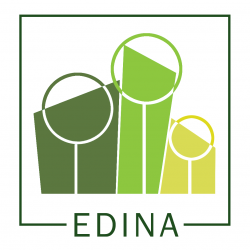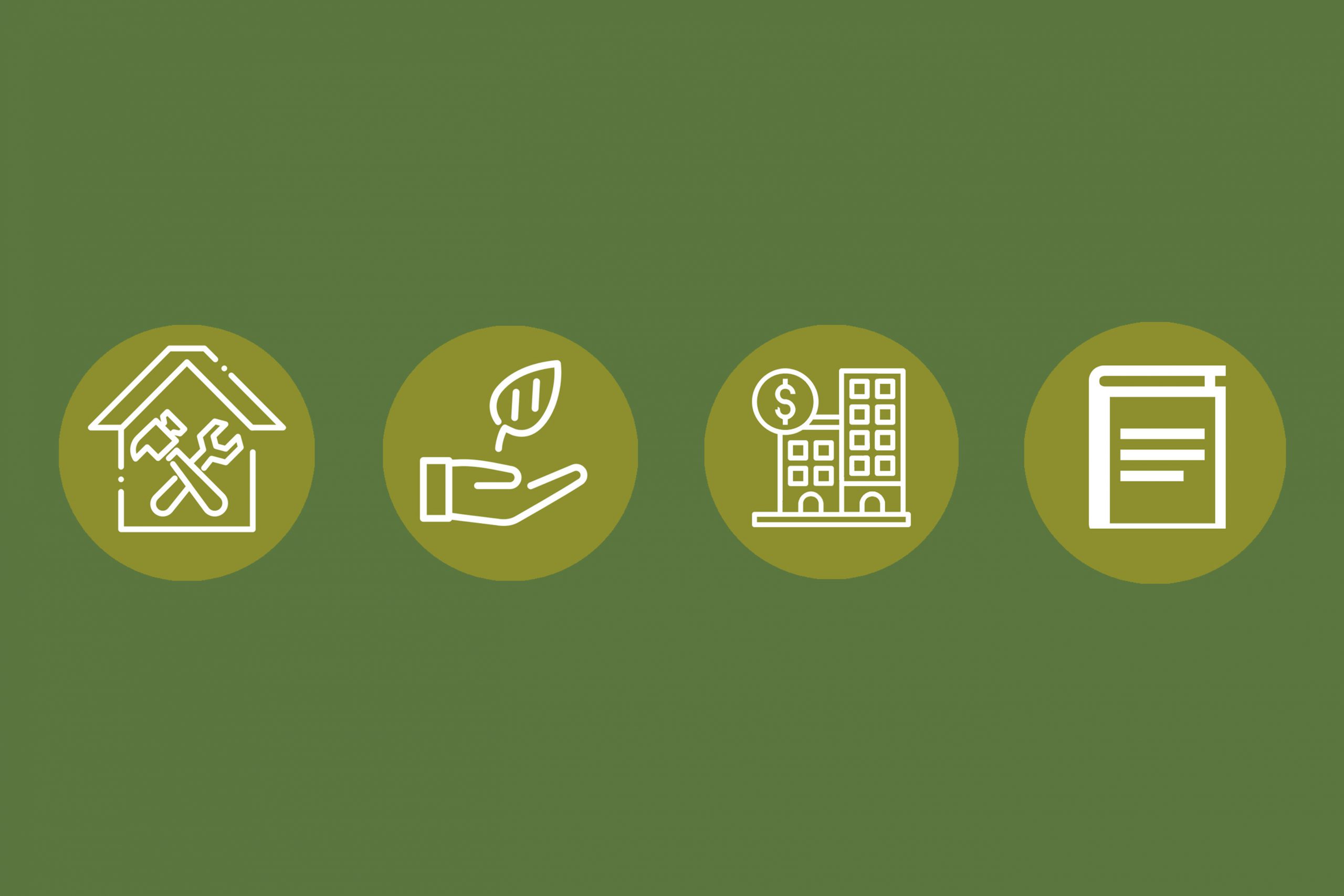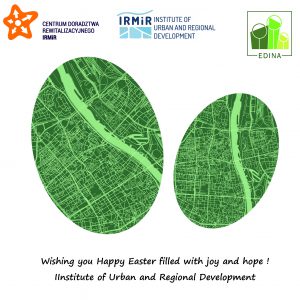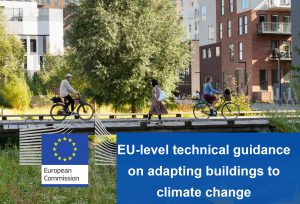The workshop was part of project “EDINA – Energy-efficient development of special revitalisation zones and urban areas” implemented with two partners: Fundacja Poszanowania Energii (FPE) and Housing Initiative for Eastern Europe (IWO e.V.).
The project is part of the European Climate Initiative (EUKI) acting on behalf of the Federal Ministry for the Environment, Nature Conservation and Nuclear Safety (BMU). The main goal of EUKI is to support climate cooperation in the European Union (EU) to reduce greenhouse gas emissions.
The workshop was attended by the representatives of Polish cities possessing Special Revitalisation Zones (SRZs), in particular the representatives of the cities of Kalisz, Płock, Włocławek, Bytom and Łódź, as well as the Sendzimir Foundation, National URBACT Point, Institute of Urban and Regional Development (IRMiR), Fundacja Poszanowania Energii (FPE), including the FPE energy efficiency experts: dr inż. Joanna Rucińska and dr inż. Jerzy Kwiatkowski, and the Veolia expert, Marcin Kwiatos, Head of the Analysis and Technology Department, Veolia Energia Łódź.
In the summary of the meetings held so far, the following agreements were emphasised:
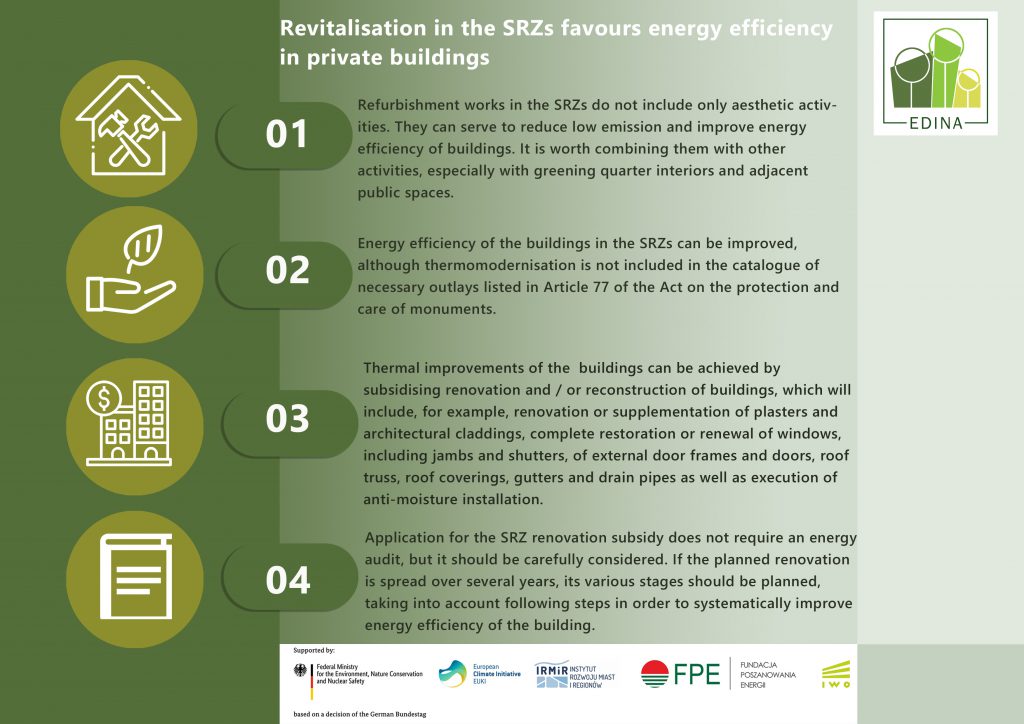
The Friday meeting consisted of three parts.
In the first part, Joanna Rucińska presented a lecture entitled “Energy efficiency”, in which she discussed the basic issues related to energy efficiency, from the energy performance of an existing building to comprehensive modernisation using various energy sources with the participation of many stakeholders, based on the Polish examples.
Then, as part of an open discussion, the benefits of increasing energy efficiency of a building, especially for its end-user, were discussed, as well as various possibilities of co-financing modernisation of existing buildings, and combining these sources with subsidies possible in Special Revitalisation Zones.
In the next part of the meeting, there was a presentation by Marcin Kwiatos, Head of the Analysis and Technology Department in Veolia Energia Łódź, whose heating system is based on biomass and the use of intelligent solutions. The Veolia company supports residents and housing communities in reducing heat consumption in the revitalisation areas in Łódź. Mr. Kwiatos presented examples of the Veolia projects that included development of concepts and heating networks to be connected to public and residential buildings situated in the historic districts of Łódź.
Then, in the introduction to the workshop work, Jerzy Kwiatkowski presented examples of criteria and evaluation of the energy efficiency improvement of buildings in terms of safety, energy efficiency, innovation and functionality.
Afterwards two rounds of workshops took place:
1st round: What should be the minimum energy requirements for each project carried out within the Special Regeneration Zones? How should the bonuses for additional energy efficiency solutions in refurbished buildings be defined?
2nd round: How to combine different sources of co-financing renovations improving energy efficiency in buildings in the SRZs?
Summarising both rounds, it was found that using criteria that would not refer in detail to specific solutions such as entry thresholds or check-lists would be beneficial for raising the investor’s awareness regarding new available solutions for improving energy efficiency of the building and environment. It was also proposed to create such a tool to help cities that provide subsidies in the SRZs. It was also emphasised that in an integrated approach to renovation the staging of works is important. That could be achieved through energy passports in a form of a guide on how to increase step by step energy efficiency of a building, by increasing its energy class, and how to define the minimum requirements at individual stages of works.
The planned works could also be associated with a catalogue of possible sources of funding, including, for example, the programme “Czyste Powietrze” (Clean Air) and subsidies such as Stop Smog or Ulga termomodernizacyjna [Thermomodernisation relief] developed under this programme. Consulting centres would be very useful in such type of activities, as they would provide information about possible financial support for the works at respective stages of the building modernisation.
It is worth improving comprehensively the technical parameters of the building, adapting it to local conditions and strategic goals of the cities.
The creation of a catalogue of activities along with the indication of available financial sources was proposed. The catalogue categories would include:
1. Basic renovation works,
2. Additional modernisation works,
3. Energy sources,
4. Building surroundings.
The workshop ended a series of meetings conducted in accordance with the roadmap below:

We will invite you soon to discuss the idea of a toolkit.
